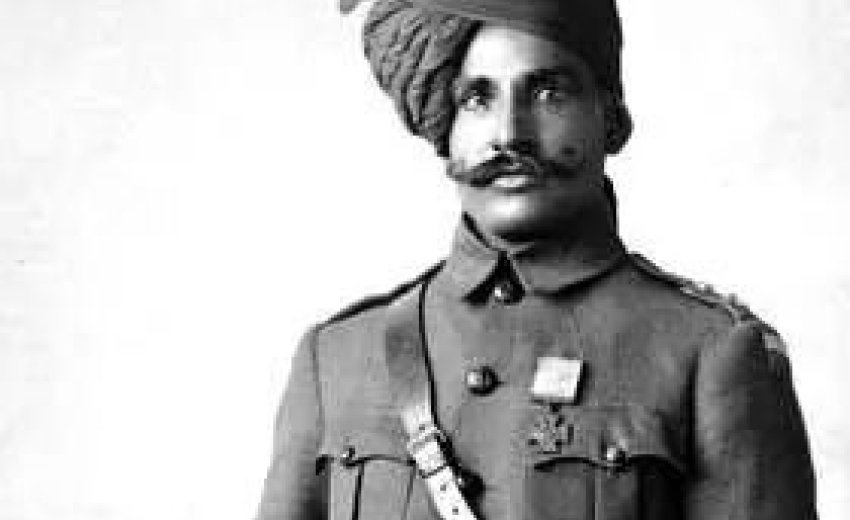He received the Victoria Cross (VC), the highest military honor for bravery
The Battle of Cambrai in 1917 is famous for its tank offensives, but the diaries also highlight the bravery of horse cavalry. They describe clashes between swords and lances against guns. One soldier, Gobind Singh, earned the Victoria Cross for delivering urgent messages despite having three horses shot under him while he did so and completing his journeys on foot.
In the heart of the battle on December 1, the Mhow Cavalry, part of the Indian Army, faced heavy machine gun fire as they advanced. Despite this, they courageously pressed on towards their goal of capturing a German position.
Despite the non-arrival of 14 tanks meant to assist them, the soldiers received orders to advance. They charged towards the trench, apparently ignoring the nearby Germans who allowed them to pass. After crossing, they swiftly turned back amidst intense machine gun fire. The incident occurred on December 1, when a group of horses either passed through a gap in a barbed wire fence or leaped over it. Following them, Lieutenant Broadway and a handful of men pursued retreating German soldiers.
During the battle, Lieutenant Broadway managed to take down two German soldiers using his sword. However, he was ambushed and fatally shot by a German officer who pretended to surrender but had a hidden revolver. Following this, another soldier swiftly avenged Lt. Broadway's death by fatally striking the German officer with a lance.
After the initial success in capturing the outpost, the cavalry unit found themselves under attack again. They were eventually surrounded and cut off from reinforcements.
But the report says ‘notwithstanding this and also heavy machine gun fire from both flanks, a sowar [mounted soldier] brought in two messages describing the situation to Brigade HQ. He had three horses shot under him but nevertheless was ready, and wished to return to his regiment’.
The soldier mentioned in the diary report was Gobind Singh, who was 29 years old at the time and hailed from Damoi, a small village in Rajasthan. He received the Victoria Cross (VC), the highest military honour for bravery, as noted in the London Gazette on January 11, 1918. The citation praised his exceptional courage and dedication to duty. Singh bravely volunteered three times to carry messages between the regiment and brigade headquarters, covering a distance of over 1 1/2 miles across open terrain, despite heavy enemy fire and constant observation.
‘He succeeded each time in delivering his message, although on each occasion his horse was shot dead and he was compelled to finish his journey on foot.’
Singh lived through the war and passed away at 60 in 1942. The Battle of Cambrai started in November 1917 with the aim to break through the Hindenburg Line, a German defense on the Western Front. Both sides suffered heavy losses, with the Germans losing around 50,000 soldiers and the British around 45,000. The diary report highlights the commendable spirit and behavior of all ranks of the Central India Horse during their role on December 1.
*Based on an article by David Wilkes, published in dailymail.co on 18th April 2014
